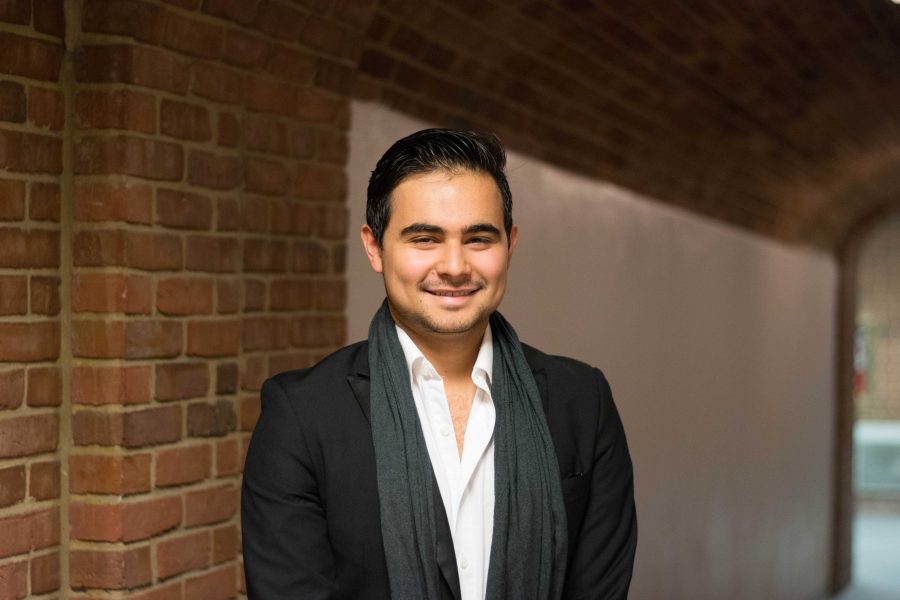I learned of this year’s IMPACT Symposium lineup last Saturday and found myself, as last year, underwhelmed. Last year, the lineup consisted of CNN news host Van Jones, journalists Shaun King and Ezra Klein, and all-star NBA player and activist Kareem Abdul-Jabbar. This year, we had Bumble and former Tinder sociologist Dr. Jessica Carbino, NBC host and bestselling author Chris Matthews and The Daily Show correspondent Hasan Minhaj.
While all of these are accomplished figures in their own right, take a look at the lineup for 1967: Dr. Martin Luther King Jr., Allen Ginsberg, Strom Thurmond, and Stokely Carmichael–a truly eye-popping and historical lineup. The Symposium has also hosted figures such as Presidents George HW Bush and Jimmy Carter in 1979 and 1986 respectively, and British Prime Minister Margaret Thatcher in 1996.
While any speaker coming to any university at any time ought to challenge their audience in some way, I understood the IMPACT symposium–even before I matriculated here–as an event which was specifically meant to stimulate discussions in the Vanderbilt community by explicitly bringing in challenging and sometimes controversial public figures.
I understand we can’t be expecting earth shattering lineups of historical public figures every year: factors such as budget and availability place inevitable constraints on organizers.
“Speaking fees have risen dramatically in recent years, making some speakers simply unaffordable for our committee,” said Lucy Davies-Kumadiro, incoming co-chair to the Vanderbilt Programming Board speaking committee. “Of the offers we do send out, many aren’t accepted.”
Arguably, and quite possibly because of such constraints, the IMPACT lineup for the past two years are actually about par for the course, with most symposium lineups hosting respectable figures but for the most part no individual too eye-popping.
Yet, the symposium remains remains a selling point on campus tours; I remember that my tour guide seemed almost too excited to mention the visits of Spike Lee and John Boehner.
“Our goal of the symposium is always to bring a range of perspectives to the student body in order to spark important dialogues,” Davies-Kumadiro said. “We aim to diversify our lineups, both in the sense of the identities of the speakers and their ideological viewpoints.”
Admittedly some years accomplished this better than others; last year’s symposium, for example, received criticism for being all-male. The process of choosing speakers–coming up with names, composing a shortlist, sending offers, and seeing which ones are accepted–is not an exact science.
All things considered, then, perhaps 1967’s symposium was indeed a lightning in a bottle type event, and rarely is it possible for a university to host such prominent figures with such diverse viewpoints so directly relevant to a key point in history. But aren’t such events something the University should be aiming for if at the very least for the symposium to remain a good selling point on tours and ultimately higher application rates? The intent of the IMPACT symposium–to start important discussions–suggests, though a bit more modestly, that we should.
The IMPACT lineup for the past two years has consisted of political figures of the liberal establishment, Dr. Carbino excepted as her background is reasonably unique, and perhaps Shaun King depending on how narrowly or broadly “establishment” is defined. While the things they have to say might be interesting in their own right, it is unlikely that anything said will be unorthodox or unprecedented. They are in a sense “safe” speakers; the audience can reasonably assume that their own views and values will not face rigorous destabilization because they have a certain sense of what will be heard. Consequently, dialogue is not so easily started since the worldviews of the audience are not adequately challenged. Stokely Carmichael, if he were alive today, would cause quite a stir, and certainly no shortage of discussions would follow.
This is also not addressed by simply extending more to the other end of the political spectrum by inviting someone like Ben Shapiro next year. I would say this is not a matter of necessarily inviting more conservative figures, but inviting more non-establishment figures. Dr. King and Stokely Carmichael fit this mold–one might even describe them as anti-establishment figures. Today, I might consider individuals such as Judith Butler, Jordan Peterson, Slavoj Žižek, and Angela Davis–who has been at Vanderbilt twice in other speaking capacities–excellent fits for IMPACT. The IMPACT Symposium, if it’s a tradition distinguished from an ordinary lecture or colloquium and seeks specifically to intellectually challenge its audience, is an opportunity for Vanderbilt to present unorthodox figures with unique, off-the-wall, challenging and controversial viewpoints not often seen or heard through typical news or social media. A symposium, on whatever topic, should be an event which challenges its attendees and provokes critical thought, not an echo chamber.

